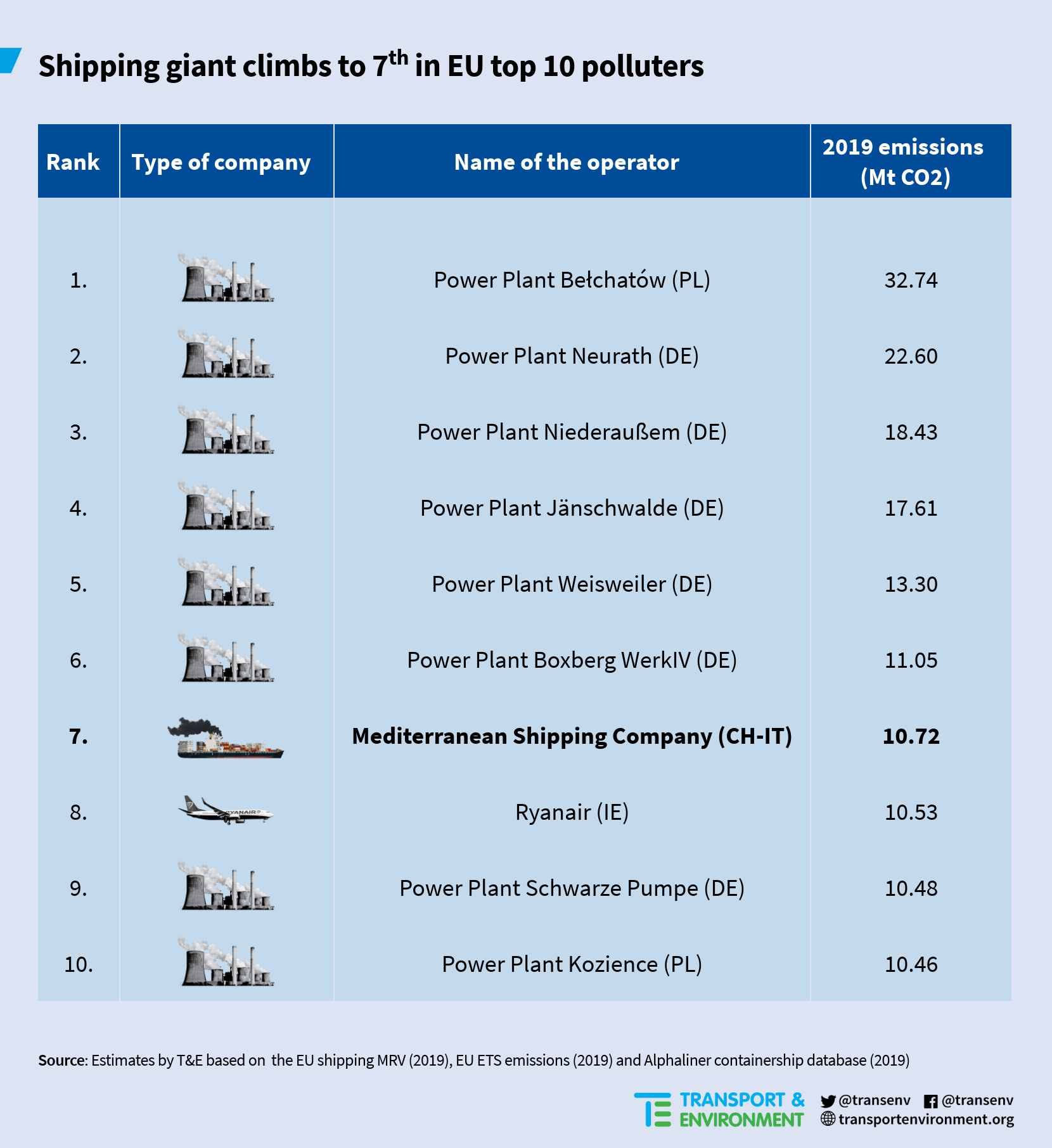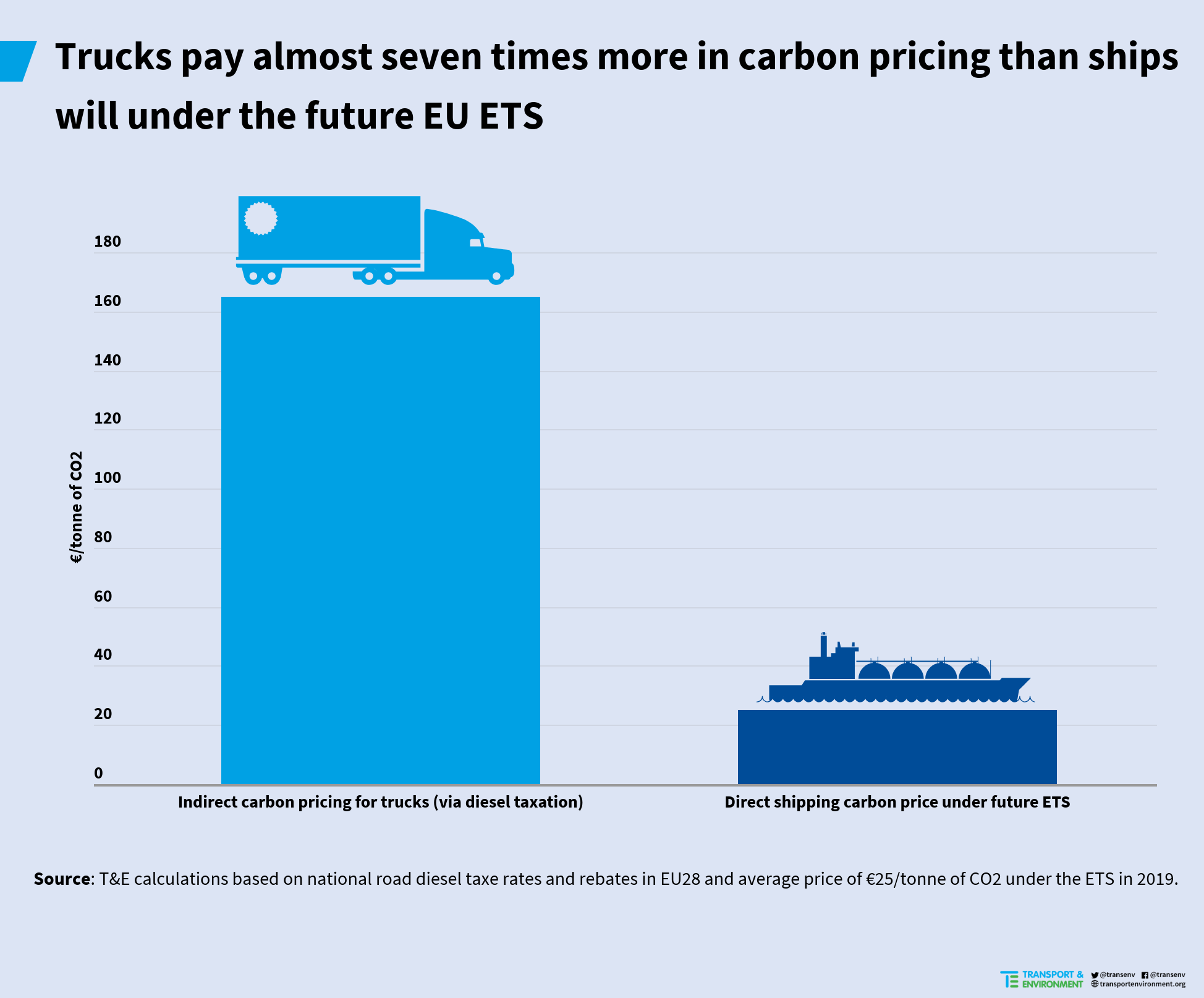
Interested in this kind of news?
Receive them directly in your inbox. Delivered once a week.
Faïg Abbasov, shipping manager at T&E, said: “Power and other sectors are cutting their emissions year in year out in response to EU regulations, but shipping pollution is left untouched. We can’t be at the mercy of global trade trends to tame maritime pollution. MEPs should vote for a system that finally makes ships pay for their emissions and re-invests the money in cleaner boats.”
Shipping currently does not pay a cent for its carbon pollution. But even if required to buy EU pollution permits, European shipping would still be paying seven times less for their emissions than trucks do (through fuel taxes), T&E’s analysis shows. The EU Green Deal commits to include ships in the EU carbon market, while MEPs want the money raised to be invested in greener maritime technology including hydrogen.
The inclusion of shipping in the ETS would need to be complemented with CO2 standards that apply when ships are in operation, T&E said. Standards would drive the uptake of energy saving technologies and green hydrogen and ensure shipping’s decarbonisation by 2050. But they have to be set at stringent levels and should deliver additional efficiencies on top of market-driven improvements.
Faïg Abbasov concluded: “The EU carbon market will raise much needed funds for greener shipping technology, but that’s not enough to clean up the sector. It needs to be done in tandem with CO2 standards that require ships to operate more efficiently and use green hydrogen. To achieve full-decarbonisation by 2050, European shipping must improve its carbon intensity by more than 40% between now and 2030.”



